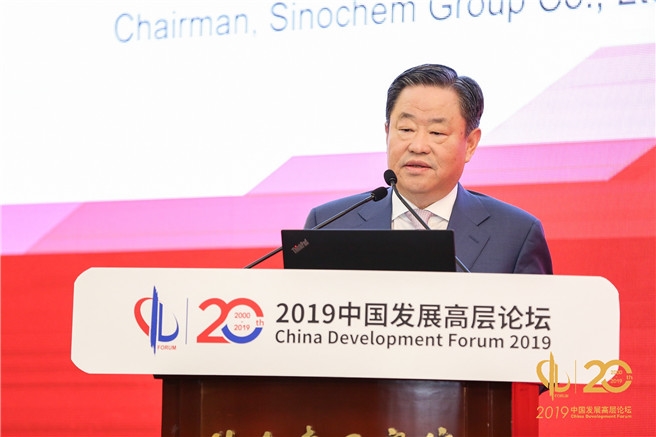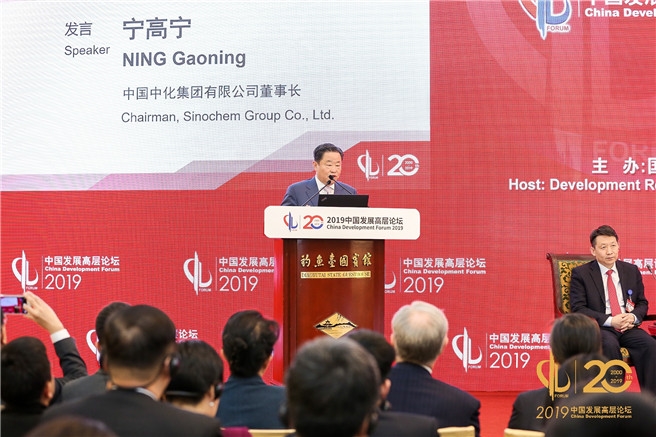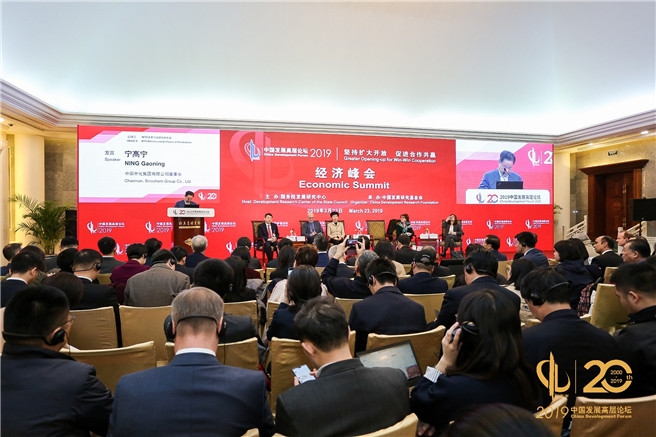

On March 23, Mr. Frank Ning, Chairman of Sinochem Group, attended the 2019 China Development Forum in Beijing. At a special session presided over by Mr. Long Guoqiang, Deputy Director of the Development Research Center of the State Council, Mr. Frank Ning led talks on WTO Reform and Future of Globalization joined by a host of celebrated figures such as Mr. Pascal Lamy, former Director - General of the World Trade Organization; Ms. Gao Yan, President of the China Council for the Promotion of International Trade; Ms. Charlene Barshefsky, former US Trade Representative, senior international partner of the Wilmer Cutler Pickering Hale and Dorr LLP, and Ms. Pinelopi Koujianou-Goldberg, Chief Economist of the World Bank Group.
Mr. Frank Ning told the participants with his own experience that, China’s painstaking efforts on the accession to WTO more than ten years ago was due to the strong conviction of globalization and trade liberalization. China benefitted from the accession and has been constantly integrating WTO’s concepts and rules. The world, which has also benefitted from China’s low-cost goods, labor, and extensive market and investment opportunities, has enjoyed golden development for one to two decades.

Mr. Frank Ning indicated, that in view of the role and status of the WTO in the past, the WTO that once dominated the world trade is now undergoing stagnation as a result of various obstacles from itself and the outside world. Furthermore, he emphasized that, in addition to some reforms at technical and regulatory level, only when consensus on some necessary things and concepts is reached can WTO continue to survive. These necessary things and concepts include: First, whether we still believe in free trade and global trade. Second, do we still need trade globalization? Third, do countries under the WTO framework need fair treatment? Fourth, whether trade and ideology should be linked. Fifth, whether trade policy and a country’s political system should be associated. Sixth, is there an inextricable connection between a country’s trade balance status and its position in the world? And seventh, is there a relationship between trade policy and a country’s domestic election?